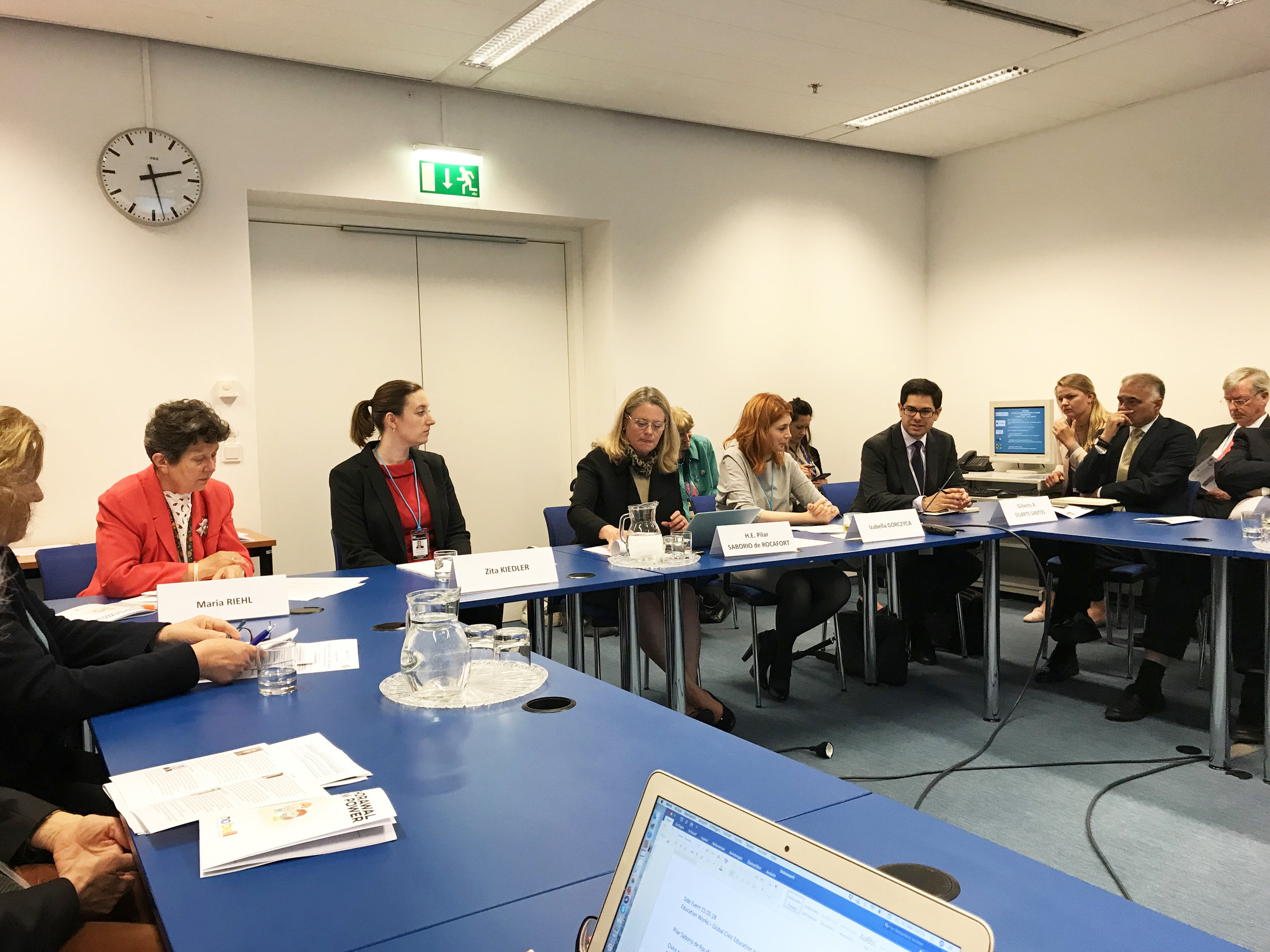UN Vienna: Global Civic Education is Crime Prevention
By Renate Amesbauer
H.E. Ms. Pilar Saborio de Rocafort, Ambassador of the Permanent Mission of Costa Rica to the UN at Vienna and co-sponsor of the CCPCJ side event organized by WFWPI, the Academic Council on the UN System (ACUNS), the Universal Peace Federation and others, opened the Session with these words:
“Peace does not come by itself; peaceful behaviour is something to be learned and to strive for day by day...Civic education means to strengthen that feeling inside oneself that I am part of the whole, I am not only effected by my surroundings, but I can have an effect too and should also include learning skills for conflict resolution.”
Adopted at the conclusion of the 13th UN Congress on Crime Prevention and Criminal Justice (CCPCJ), the Doha Declaration highlights the importance of education as a tool to prevent crime and corruption. It emphasizes that education for children and youth is fundamental in promoting a culture that supports the rule of law, crime prevention and criminal justice.
In support of this, the Education for Justice (E4J) initiative has been developed to create and disseminate education materials in UNODC mandated areas of crime prevention and criminal justice across primary, secondary and tertiary education. Online tools and academic resources will be made available free of charge, while workshops, conferences and symposia will be organized for teachers and academics to learn and exchange ideas and research.
Dir. Izabella Gorczyca explained that while we are developing intellectually and technologically, adults and children alike are far behind in their emotional intelligence; something she is working hard to remedy.
Ms. Zita Kiedler, a middle school teacher, shared her experience teaching about “Schulfach Glück”(“Happiness”), a subject that promotes life skills and happiness by helping adolescents create an active and self-reliant lifestyle through key experiences that trigger personal growth and self-awareness.
Dr. Maria Riehl reminded the audience that we are created beings, coming from two origins: our parents. She also commented on that fact that contrary to animals who need to be able to move by themselves right after birth, every human being is born completely dependent on a caregiver and family.
She also portrayed from her perspective as a grandmother just how much of an impact the everyday life in the family has on a child, especially with siblings growing up together.
Dr. Riehl referred to the “four realms of love” that can be learned in a family. The first is the love of a helpless child towards their parent, then the shared love among siblings, which grows to the exclusive love between committed partners, which may eventually develop into the love of parents toward their children.
After the official program ended, discussion among participants continued for almost two hours outside the conference room over coffee.

